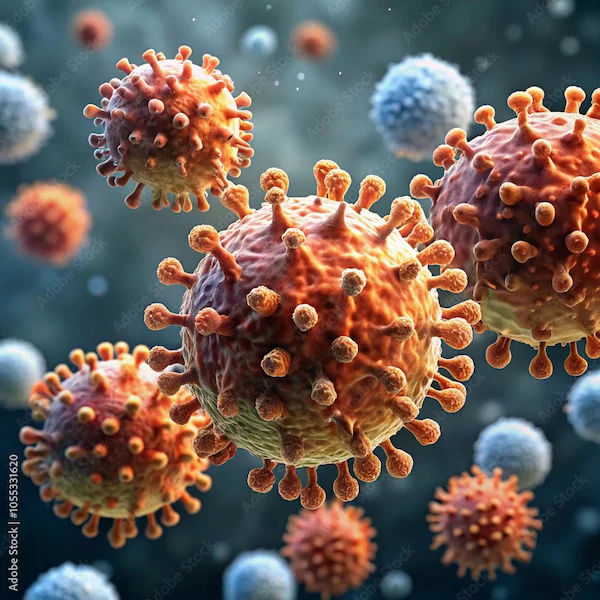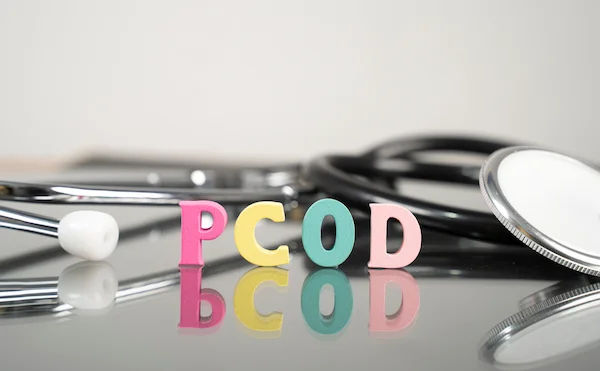Understanding Salmonella Typhi and Typhoid Fever
Learn about Salmonella Typhi and typhoid fever, including causes, transmission, symptoms, and effective prevention and treatment options.

Written by Dr. Mohammed Kamran
Reviewed by Dr. D Bhanu Prakash MBBS, AFIH, Advanced certificate in critical care medicine, Fellowship in critical care medicine
Last updated on 27th Jul, 2025

Typhoid fever is a serious illness caused by the bacterium Salmonella Typhi. It spreads through contaminated food and water and can lead to high fever, stomach pain, and other complications if left untreated. Understanding this infection, its symptoms, causes, and prevention methods can help you stay safe and seek timely treatment.
What is Typhoid Fever?
Typhoid fever is a bacterial infection that primarily affects the digestive system. The culprit behind it is Salmonella Typhi, a harmful bacterium that thrives in unsanitary conditions. When someone consumes contaminated food or water, the bacteria enter their body, multiply in the intestines, and spread into the bloodstream, causing fever and other symptoms.
How Does Typhoid Fever Spread?
Typhoid fever is highly contagious and spreads through the faecal-oral route, meaning:
Contaminated Food & Water: Eating food prepared by an infected person who didn’t wash hands properly or drinking water contaminated with sewage.
Poor Sanitation: Lack of clean water and proper waste disposal increases the risk.
Close Contact: Living with or caring for an infected person without proper hygiene measures.
Symptoms of Typhoid Fever
Symptoms usually appear 1-3 weeks after exposure and may include:
High fever (up to 104°F or 40°C) that gradually worsens
Weakness & fatigue
Headache & body aches
Stomach pain & loss of appetite
Diarrhoea or constipation (sometimes alternating)
Rose-colored spots on the chest or abdomen (in some cases)
If untreated, typhoid fever can lead to severe complications like intestinal bleeding, perforation, or even life-threatening infections.
Get Your Symptoms Checked By Top Specialists
Who is at Risk?
While typhoid fever can affect anyone, certain groups are more vulnerable:
Travellers visiting regions with poor sanitation (South Asia, Africa, Latin America).
Children, as their immune systems are still developing.
People with weak immunity (HIV/AIDS, chronic illnesses).
Food handlers who may unknowingly spread the bacteria.
Diagnosis and Treatment
If you suspect typhoid fever, consult a doctor immediately. Diagnosis usually involves:
Blood, stool, or urine tests to detect Salmonella Typhi.
Widal test (though not always reliable alone).
Get The Test Here
Treatment Options:
Antibiotics: The primary treatment to kill the bacteria.
Hydration: Drinking fluids to prevent dehydration.
Rest & proper nutrition: Helps the body recover faster.
Note: Some strains of Salmonella Typhi are antibiotic-resistant, so always follow your doctor’s prescription carefully.
Prevention Tips
The best way to avoid typhoid fever is through hygiene and vaccination:
1. Practice Good Hygiene
Wash hands thoroughly with soap before eating and after using the toilet.
Drink only boiled or bottled water.
Avoid raw or undercooked food, especially street food in high-risk areas.
2. Get Vaccinated
Two types of vaccines are available:
Oral vaccine (live attenuated): Taken as pills.
Injectable vaccine (inactivated): Given as a shot.
Consult your doctor to choose the best option, especially if travelling to typhoid-prone regions.
3. Maintain a Clean Environment
Ensure proper sewage disposal.
Keep kitchen utensils and food storage areas clean.
When to See a Doctor?
Seek medical help if you or a loved one experiences:
Persistent high fever
Severe stomach pain or vomiting
Blood in stool
Extreme fatigue or confusion
Early treatment can prevent complications and speed up recovery.
Can Typhoid Fever Recur?
Yes, some people become carriers—they recover but still carry the bacteria and can spread it to others. If you’ve had typhoid before, follow up with your doctor to ensure complete recovery.
Conclusion
Typhoid fever is preventable and treatable if detected early. By maintaining good hygiene, getting vaccinated, and seeking prompt medical care, you can protect yourself and your family.
If you suspect typhoid symptoms or need vaccination advice, consult a doctor on Apollo 24|7 for expert guidance and testing.
Consult Top Specialists
Get Your Symptoms Checked By Top Specialists

Dr. Lakshmi Sindhura Kakani
General Physician/ Internal Medicine Specialist
10 Years • MBBS, MD (General medicine)
Visakhapatnam
Apollo 24|7 Clinic - Andhra Pradesh, Visakhapatnam

Dr. Lakshmi Sanjitha Kakani
General Physician/ Internal Medicine Specialist
6 Years • MBBS, MD (General Medicine)
Visakhapatnam
Apollo 24|7 Clinic - Andhra Pradesh, Visakhapatnam

Dr. M L Ezhilarasan
General Practitioner
6 Years • MBBS
Visakhapatnam
Apollo 24|7 Clinic - Andhra Pradesh, Visakhapatnam

Dr. Syed Yaseen Ahmed
General Practitioner
7 Years • MBBS
Hyderabad
Apollo 24|7 Clinic, Hyderabad

Dr. Jawwad Mohammed Kaleem
General Practitioner
4 Years • MBBS
Hyderabad
Apollo 24|7 Clinic, Hyderabad
Consult Top Specialists

Dr. Lakshmi Sindhura Kakani
General Physician/ Internal Medicine Specialist
10 Years • MBBS, MD (General medicine)
Visakhapatnam
Apollo 24|7 Clinic - Andhra Pradesh, Visakhapatnam

Dr. Lakshmi Sanjitha Kakani
General Physician/ Internal Medicine Specialist
6 Years • MBBS, MD (General Medicine)
Visakhapatnam
Apollo 24|7 Clinic - Andhra Pradesh, Visakhapatnam

Dr. M L Ezhilarasan
General Practitioner
6 Years • MBBS
Visakhapatnam
Apollo 24|7 Clinic - Andhra Pradesh, Visakhapatnam

Dr. Syed Yaseen Ahmed
General Practitioner
7 Years • MBBS
Hyderabad
Apollo 24|7 Clinic, Hyderabad

Dr. Jawwad Mohammed Kaleem
General Practitioner
4 Years • MBBS
Hyderabad
Apollo 24|7 Clinic, Hyderabad





